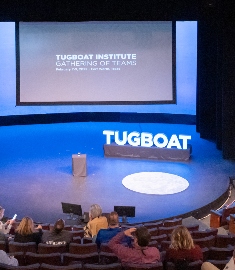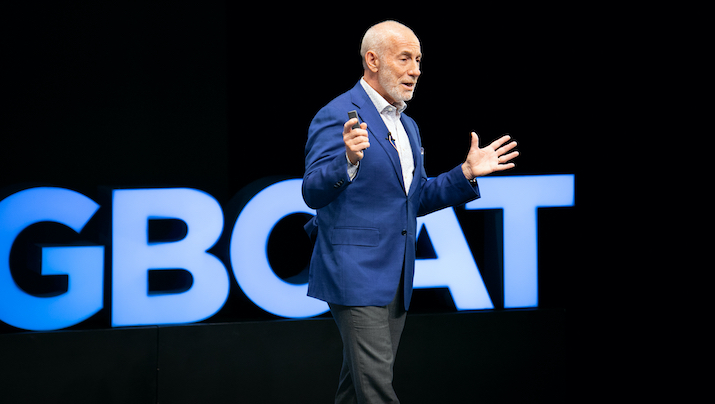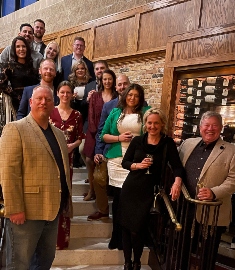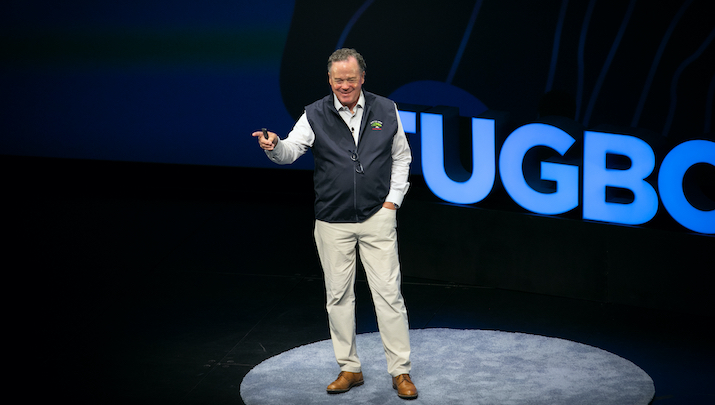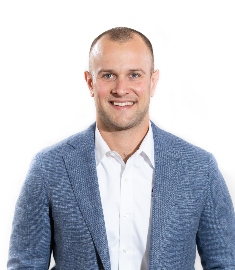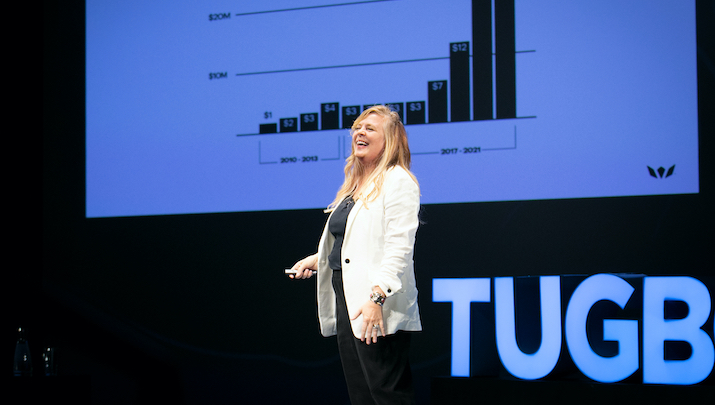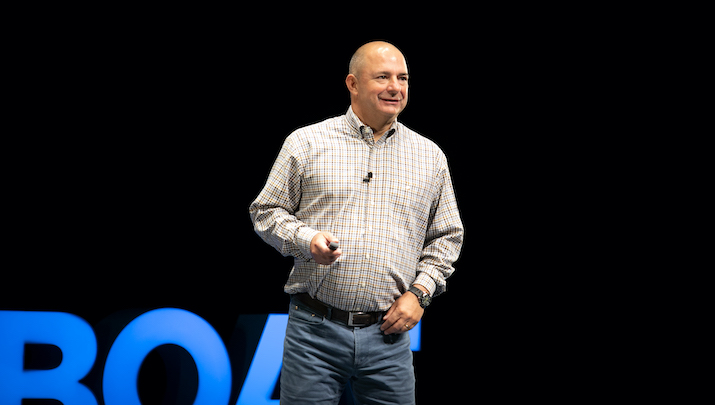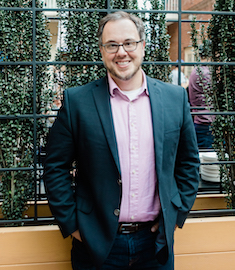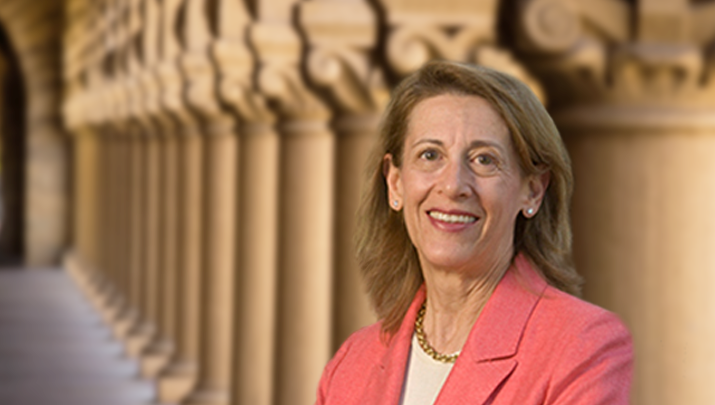Tugboat Institute Gathering of Teams 2022
It took both perseverance and a dedication to purpose to make the 2022 Tugboat Institute® Gathering of Teams possible, but last week we managed to pull it off, and it was outstanding.
At this hybrid event, over 60 people virtually joined the 300 in-person attendees. Between challenges presented by the lingering Omicron surge and supply chain issues that threatened to delay the delivery of materials, we had our work cut out for us, but the dedication and extraordinary care of our entire Tugboat community overcame it all. We are so proud of the efforts of all attendees, and of the fact that our event was such a safe and joyous one. For two and a half days, our members and their teams shared learning, ideas, experiences, and fun and emerged inspired to pursue their Evergreen® goals with renewed passion and energy.
Throughout the event, which was comprised of a mix of TED style talks and smaller, group workshops, we structured our learning around the framework of the Evergreen 7Ps® principles.
After an evening of exploring mini-games and the philosophies behind the Great Game of Business with Steve Baker, Dave Whorton opened the series of TED style talks with a reflection on Purpose. Dave’s talk built on the conversations about Purpose from our visits to Edward Jones and Clase Azul last fall, as well as Hubert Joly’s book The Heart of Business about the improbable, and very Evergreen value-aligned, turnaround of BestBuy.
Borrowing from data shared at Edward Jones, Dave showed the powerful cultural trend of employees working for and customers buying from, referring to, and protecting companies with an authentic Purpose. He spoke to why he believes non-Evergreen companies--whether public, venture-backed, or private equity owned—might state an explicit, noble purpose, but in practice cannot truly be driven by Purpose due a number of dynamics, including their ownership’s expectations of high returns when push-comes-to-shove. His belief is that authentic Purpose can only be protected and honored through all seasons and over decades in a company that remains forever Private with aligned, concentrated ownership.
Dave used his presentation to unveil our new definition of Purpose, grounded in our collective learning as a community over the past eight years: Having a compelling reason for existing--a north star above all else.
Having set the stage for the learning for the rest of the week, Dave introduced five more TED style talks that further expounded on the power and importance of high performance teams, Pragmatic Innovation, leadership lessons, communication strategies, and the Evergreen 7Ps principles.
First, Bryan Papé shared his powerful personal journey founding and scaling MiiR, a company driven by Purpose and undeniable proof that a great consumer products company can be built and scaled without venture capital. Kristi Tacony Humes, 3rd generation CEO of Tacony Corporation, spoke to the importance of continually asking why and seeking ways to continuously improve oneself and one’s company. Rorke Denver, a former US Navy SEAL commander and acclaimed author, actor, and leader shared wisdom on the dynamics and qualities of high-performance teams. Rich Ledbetter, CEO of Guarantee Electrical, shared Simple Tools for leadership and business success gleaned from a variety of thought-leaders throughout his career. And finally, David Bradford, Lecturer Emeritus at Stanford’s School of Business, encouraged us to be more honest than we might have thought possible with our teams, families, and all important relationships.
The afternoon and the morning of the next day were dedicated to workshops that brought together peers from across many different industries. The conversations were rich and offered insight and ideas that energized and inspired the participants. The enthusiasm and energy of the groups, fueled by new connections and the opportunity to share and brainstorm together, were palpable.
One evening, the group headed to the River Ranch Stockyards for a night of festivities. The venue, which included a paddock of long horn steers, cowboys swinging lassos, and burros offering refreshments in their saddle baskets, was the perfect place to enjoy new friendships, reconnect with old friends, and make some memories.
The two and a half days were full, busy, and inspiring. As is the case every time Evergreen company leaders come together, the energy and joy that fuel our unique Evergreen paths exceeded our hopes and expectations. There is no doubt that our movement and our collective commitment to the Evergreen 7Ps principles are steadily gaining momentum, and that our trusted community is profoundly important to our members and their teams.
Teach Them How to Say Goodbye: Navigating a Graceful CEO Transfer Steve Shifman
Johnny Bench played for the Cincinnati Reds for 17 years. He was a hero to his fans and a star of the game. In his last game before he retired, in 1983, he hit a home run. He was at the top of his game. Steve Shifman is a Reds fan and the former CEO and current Executive Chairman of the Board of Michelman. He learned a lot from Johnny Bench. As he felt the end of his career as CEO coming onto the horizon, he took a page from Johnny’s book – go out on top.
In this Tugboat Institute® talk, Steve shares his experience and his advice around stepping into a CEO transition with grace, with hope, and with a solid plan. He identifies the key factors that will ensure it is as smooth as possible. As he plans to hand over the reins of his Evergreen® company, he feels that he has set the stage for a successful transition and is excited for his next chapter.
Watch and be inspired to make a succession plan for your Evergreen company.
Teaching Leadership Skills for Success at Work and in Life
At Ayers, an Evergreen® company, an unskilled laborer with minimal education and no management skills can advance, in less than five years, to managing and leading a production team.
There are two critical ingredients for this kind of rapid progress: an eagerness and a willingness to learn, and a grounding in the values of our purpose-driven company. We can’t teach the former, but we can teach the latter, and we do.
In 2019, my son Zack, who is currently our VP of Operations, had just completed a masters-level course in Entrepreneurship and we were looking for ways to handle the pressures of constant hiring and training for our very niche market as we scaled the company. Zack’s experience in the program gave us cause to discuss the leadership lessons he had been studying, and to be reminded how much good leadership is actually grounded in simple skills and old-fashioned values. We came up with the idea of creating a course at Ayers to teach employees these basic life and work skills.
I am a fan of Patrick Lencioni’s The Ideal Team Player, and knew that if we could get people who were “hungry, humble, and smart,” we could tap their potential and help them, and us, create our next line of supervisors and even managers.
With Zack as my partner, we created our Leadership Immersion program. The first course was 13 weeks long, and the homework before the first class was to read Lencioni’s book and do some reflective writing on Ayers’ values and purpose. My son and I taught it ourselves, and we had our whole management team go through it with the first cohort. The lessons were focused on leadership and life skills that not only make employees better leaders, but also better people.
Our curriculum is about professionalism and instilling values and habits which underpin effective leadership. We ask that students come dressed professionally and most wear a coat and tie. Lessons include basics such as time management, success principles, and being a solid team player. But they also include how to run a small team, how to be a good neighbor or spouse, how to budget, and how to be better with money.
Each week, there is homework, reflection, and preparation to do. Joining the program is a significant undertaking and this fact alone helps cultivate a sense of responsibility and dedication to quality that are core values of both Ayers and effective leadership in general. It encourages participants to see themselves in a new light, and to aspire to something greater.
Each session, we admit eight people. We’ve found that a small group allows for more meaningful group discussions, which make up about 50% of the class time. And it doesn’t take too many people out of their usual jobs and leave us overly shorthanded. In terms of who gets into the program, we target junior leaders, most without any education beyond high school, who have been with us for about a year. It feels important to have time to get to know them as human beings, and once we have identified the people with the willingness, ambition, and disposition to grow, we invite them into the course.
For the length of the course, which has grown to 17 weeks, they spend every Friday, from 9am to 3:30pm, in class. Why 17 weeks? The objective of this course is to transform the students into more effective employees and people, and conventional wisdom tells us it takes 17 weeks to create a new habit!
At the end of each course, we host a celebration, and this is the greatest joy for me. Everybody brings their spouse or significant other and we share the growth that has resulted from the course. Typically, not only do course members share how they’ve changed internally as people, but also their families share how much their lives have changed at home. It’s quite profound and can be life changing. Although we are clear that joining the program does not guarantee a promotion, many of them will end up being promoted.
Creating this course has meant a big investment. It’s expensive; after people and the benefits program, it’s our biggest expense. But it’s paying off in spades. Especially in today’s tight labor market, investing in our people has never proven more worthwhile. We know our employees who have been through this program are skilled, aligned with our purpose and values, and exceptional team players. It’s one of the best investments we’ve ever made.
Zack still runs the program, but increasingly, the classes are taught by members of the management team who went through the course in its first cycle. Zach now sits in the back and observes, which I love because that’s a sign it’s working. We are producing leaders who produce leaders.
It’s been so successful in fact, that we’ve just announced a new initiative that is an extension of the Leadership Immersion program. In February 2023, we will launch our first Leadership Immersion Master class for employees ready to look to the next level of leadership within the company.
For anyone thinking about offering a program like this, I think there are two important things to keep in mind. First, there has to be a multiple-year commitment. It takes time to dial in a program that’s a fit for your team. Secondly, as a leadership training program, the buy-in has to start right from the top. Even now, I still attend the class for the first 30 minutes every week, share a story, and draw a connection to the content of the lesson for the day. With this level of commitment, there is no limit to how high that laborer-turned-manager might climb.
Lessons from People First Cultures
What are the key characteristics and practices of companies that share space on the touted "best to work for" lists? How do you craft a culture to support and develop your team, sustain your company's growth, and make a difference in your community? How does a thriving business support inclusivity today?
In this talk from Tugboat Institute® Summit 2021, Dave Petersen, President and CEO of O.C. Tanner, shares his insights into these key questions. As the Evergreen® leader of a company dedicated to creating employee recognition and reward solutions that help cultures thrive, which is itself repeatedly recognized as a Best Companies to Work For®, Dave has unique insight into this topic. This presentation offers valuable wisdom around culture and the challenges today's leaders face as they consider how their companies can create a positive and lasting impact for their employees and the communities they serve.
Win the Talent War by Investing in People First
Amid the Great Resignation and an overheated talent war we haven’t seen in decades, finding ways to put People First is a vexing question for entrepreneurs in almost every industry. Before I share how we’ve answered it in our Evergreen company, it makes sense to start with a brief history.
My father started Hoffmann Brothers back in 1988. He was a mechanical engineer at the time, working here in St. Louis for Anheuser-Busch, and he worked closely with a mechanical contractor to air condition several of their facilities. He really loved the exposure to the HVAC space. He’d wanted to get in business for himself for some time, so he put in his two-week notice with Anheuser-Busch, joined a small, four-person heating and cooling shop, and enrolled in a local trade school at night—making him the first mechanical engineer with a professional engineer license to enroll in this trade school and complete the program. From the start, the business focused on delivering superior service, and my father realized early on that in order to deliver maximum value, it was essential to attract—and equally important, retain—the right people. The roots of our People First philosophy were there right from the beginning.
My chapter at Hoffmann Brothers began in 2016, when I left the Marine Corps and used the G.I. Bill to attend business school. After graduating, I joined the company along with my brother, who is also a mechanical engineer. As a Marine, I learned what it means to be a servant leader. I was inspired by Simon Sinek's Leaders Eat Last, and I hadn’t just read about it, I had gotten to use it and develop my skills through my time as a Marine. As a result, when I stepped out of the Marines and entered our family business, I had an acute sense of the importance of taking care of one’s team.
During my transition from the Marine Corps to the for-profit world, I quickly learned that the latter does not overly concern itself with the personal lives of team members. Except perhaps when personal lives begin to have a negative effect on productivity in the workplace, “Leave your problems at the door,” whether stated or implied, is a mantra familiar to many businesses.
In the Marine Corps, being “mission ready” meant that your Marines were fully prepared for what was to come, both with respect to the professional competencies that have been honed through rigorous training, and with respect to personal affairs on the home front. As a leader of Marines, I loved that my role meant that I was holistically responsible for the people I led. Leaders of high-performing private businesses must take a similar approach if they wish to persevere in the face of the talent challenges that we face in 2022.
Compensation, Benefits, and Culture
Guided by this mindset, when my brother and I joined the company, we doubled down our father’s value of putting our people first. What does that look like? For starters, we’ve incorporated some traditional techniques, like offering competitive salaries and benefits, but we’ve taken them to the next level. We pay 100% of health insurance for employees and their entire families. Among our peer group in the national market, we are the only company that does this. For family coverage, that's over $16,000 per year per employee. We also offer an 8% 401(k) match and a generous paid vacation, starting on day one. These benefits are expensive, but that's what gets people talking and helps us attract and retain the best talent in the market.
We're a service business, which traditionally means demanding, on-call, 24-hour-service work schedules. But we want to protect our employees’ weekends and late hours as well, so we did something counterintuitive in our industry: we eliminated 24-hour on-call and scheduled calls on Sundays.
As we evaluate expansion markets in new geographies, we consider the opportunity created by the current pay and benefit landscape within a given market. For example, given that our largest constraint to growth continues to be access to the best and brightest talent in the skilled trades, as we look for opportunities to expand, we target markets where the benefits we can offer are not currently offered by existing employers, like our 100% paid health benefits for employees and families. This approach has allowed us to quickly build a strong reputation among the candidate pool in new markets, and therefore we are able to rapidly scale with team members who can meet our high quality and customer service standard.
Internal Talent Pipeline
As the talent pool of skilled trade workers has become increasingly tight, we are asking ourselves the same question a lot of businesses are asking: How do you find really good people? To address this, we’ve taken our People First mindset a step further. Over the past two decades, our society has encouraged people to attend four-year universities, where they walk away up to $150,000 in debt, rather than pursue trade careers that pay incredibly well and come with a significantly lower cost of education. But even the cost of trade school, which can be around $20,000, is prohibitive for some, especially for 30- and 40-somethings with families who want to switch careers. The result is that there are not enough HVAC technicians, plumbers, or electricians in the country right now. Rather than fight for a finite number of workers, we’re digging our own well.
How? We are building our own school. Our approach is simple: we've identified a minimum set of competencies that are necessary to create a technician capable of producing independently. If you come to our school, we will equip you with that set of competencies and we are going to do that in just 16 weeks. And we're going to pay you $18/hour while you're doing it. When you graduate, you're on the path to an $80,000 or $90,000 job within four years. While it appears to be an expensive investment, I find it a highly attractive program for finding, developing, and retaining great new team members who I hope will make a career out of working at Hoffmann Brothers.
Another part of this initiative targets employees at the leadership level. In 2022, we are investing heavily in leadership development in order to allow leaders at every level of our business to reach their full potential. Our leadership program was developed through a comprehensive design process, which began with the identification of our ‘core business drivers.’ We then mapped these core business drivers to a specific set of leadership competencies at all levels within our organization. For example, the “executive” leadership competency model will look different than our “field manager” leadership competency model. Having identified the competencies, we can now shift our focus to curriculum design and delivery. It took our field managers over ten years to become masters of their trade, and as they transition to their new leadership roles, we must be just as intentional about their leadership development as we have been about their technical skills progression.
Signs of Success
We are, of course, interested in evaluating how well our efforts and investments are working, and how they are paying off. On the employee satisfaction side, the statistic I am most proud of is our retention rate. Pre-COVID, our retention rate was 96%. Despite all the madness in the job market now, we’re still at 88%. In light of the challenges we’re facing, including the intense competition for talent, we feel great about that number.
In 2016, we had 50-55 employees and we were a $10 million business. Today, we have expanded into Nashville and grown locally, we have 300 employees, and we ended 2021 as a $55 million business. We’ve experienced 30% organic growth each year since 2016, and in 2022 we are budgeted to reach $78 million across our St Louis and Nashville markets. It appears to be working.
Evergreen® Takeaways
What we know and what we have learned as an Evergreen company is that employees today are not just looking to clock in and out and collect a paycheck. There must be Purpose behind the work that they are doing and the company that employs them. They have to feel that they are part of a collective effort, working in a place that cares about them and develops them, and where they can make a difference.
Every business in the world likes to say they’re People First. It’s easy to say. Find me a business that doesn’t say it. But how does People First actually show up in your business? For us, it’s several good, caring ideas executed well.
It's Not About the Bag, It's Where You Take It
In 2005, Conni Reed left a 16-year corporate career to launch her company, Consuela. In the wake of what she describes as “an early mid-life crisis,” Conni felt called to live an authentic, meaningful life and build a business that would make a difference in the lives of women and Mexican artisans. In the years since, she has poured her passion and creativity into Consuela, a handbag and accessories company based in Texas that vibrantly reflects the joy and beauty–her “magic”– she wants to contribute to the world.
In this talk from Tugboat Institute® Summit 2021, Conni shares her story of personal and professional Perseverance – a journey that led to her current success and her ongoing mission to support and celebrate women who impact the world in positive ways.
Cogitate and Celebrate Your Purpose
I decided to go back to the basics for the first Evergreen Journal® of 2022 and examine what sustains our vital community of over 220 members. Our membership represents companies from 32 industries operating under the leadership of CEOs and Founders determined to make the world a better place. What I found is that the common denominator of these leaders is their unwavering dedication to the Evergreen 7Ps® principles of Purpose, Perseverance, People First, Private, Profit, Paced Growth and Pragmatic Innovation. Therefore, I think it is fitting for this first missive of the year to start at the beginning, with the principle of Purpose.
Purpose. It is what inspired me to embark on a learning journey nine years ago. It is what guided me to assemble a group of like-minded CEOs and Founders for the first Tugboat Institute® Summit in 2013. It is the cornerstone of the Evergreen 7Ps principles. And, I believe, it is the North Star to which we need to look as we review the past year and embrace the new one.
When COVID-19 disrupted the world in 2020, our membership immediately implemented three key strategies—protecting the financial integrity of their business, keeping their teams safe and as intact as possible, and using pragmatic innovation to flip from defense to offense. These same pillars sustained them through 2021 as the ripples of the pandemic caused crippling interruptions in the supply chain, hiring shortages, and inflation. And as fatigue sets in from the havoc brought on by the latest COVID strain, it is the underlying purpose of these companies that will continue to guide their leaders and teams through these extraordinary circumstances and beyond.
This adherence to purpose was perfectly illustrated during our 9th Tugboat Institute Exemplar Visit to Edward Jones in October 2021. Penny Pennington, the firm’s sixth managing partner and a fellow Tugboat Institute member, personally hosted this deep dive into an Evergreen® company that has been in business for 100 years as of this month. During the experience, Penny shared her primary leadership objective to move the century-old company from a mission-driven firm to a purpose-driven one, where Edward Jones’ purpose sits at the headwaters of the firm’s culture, strategy, trade-offs, and execution.
This kind of intimate access to a like-minded peer running an Evergreen company that spans two-thirds of the US is what educates and emboldens our members as they build their own business with the intention to have it last beyond their lifetime. And it is the kind of unique experience we expect to receive this coming October, when the membership travels to Salt Lake City for the 10th Tugboat Institute Exemplar Visit at O.C. Tanner.
Established in 1927, O.C. Tanner is a global leader in software and services that improve workplace cultures. Its Culture Cloud employee recognition platform improves the employee experience, boosts productivity, and increases employee retention. Their annual Global Culture Report is an in-depth look into workplace issues based on data gathered from 21 countries. The research from this annual report provides businesses with critical insights and relevant tools for navigating an ever-evolving, post-pandemic work environment—such as the “Great Resignation” phenomenon. Findings from their past reports point to the fact that, “Employees innately desire to connect to something bigger, something more important than themselves. Most don’t come to work just for a paycheck. They don’t work passionately towards a goal that is only about profit maximization. They come to make an impact, help others, and change the world.”
I, too, believe that Purpose is a touchstone, not only for employees, but also for Evergreen leaders, their families, their shareholders, and the communities that surround their businesses. Purpose is more important than any one individual and its end contribution to the world is so much more than one company having one fiscally good year.
As we enter a new year, I encourage you to take a moment and go back to the beginning. Reflect on your company’s Evergreen Purpose. Is it articulated clearly and understood deeply within your organization? Is it a fundamental part of your culture? Is it experienced by the people inside and outside of your business? Is it celebrated?
Dave Whorton is the Founder and CEO of Tugboat Institute.
Strong Roots, Strong Branches
When Michael Spraggins, CEO of Spraggins, Inc., made the decision to step into his family’s home flooring business, he realized pretty quickly he was facing some significant challenges. The company his father founded was a commodity business with a concentrated customer base that operated in Florida’s cyclical boom-bust construction industry—a tough combination.
Despite those challenges, Michael had a vision for building a large, diversified company, and he committed to doing just that. In this talk from Tugboat Institute Summit 2021, Michael shares the milestones—and notable failures—along the path to growing a global business and a nonprofit organization and the personal fulfillment of creating a legacy for his family.
Partners At Work & Home: Insight Into Building An Evergreen Company With Your Spouse
When Dan and Tracey Pilone made the decision to cofound their software company, Element 84, they had a good sense of how their skills and character traits would complement one another in a work setting.
The couple had co-written two textbooks—one on algebra (Tracey has master’s degree in education) and one on iPhone applications (Dan’s a computer scientist)—and that experience offered an early glimpse into their professional compatibility.
“The experience of co-authoring the books was really a microcosm of everything that came after,” Dan says. “For both books, we put a plan together, executed the project, and were able to see how our work habits and patterns allowed us to be an effective team.”
Where Dan admits to going all in on an idea from the beginning and being prone to all-nighters, Tracey is more cautious, methodical, and process oriented. That balance has served the couple well over the 11 years they have led Element 84, growing the company from five to over 50 employees.
Today, Tracey serves as President, leading business operations, and Dan is CEO/CTO, running the technology side of the company. The couple has two teenage children, and they are continually navigating the shared responsibilities of business and family. As they reflect on their decision to found and lead a company together, both are aware of the lessons they’ve learned the hard way in creating a successful partnership at home and at work—and the gifts of the experience.
Two Different Approaches To Risk Have Promoted Sustained Growth
Dan is more risk tolerant than Tracey is and says that he generally approaches things with the perspective of, ‘how hard could it be?’. He gets passionate about projects and tends to be ready to jump right in.
Tracey’s instinct to ask the important questions and think through the long-term consequences of decisions is an important counter to Dan’s enthusiasm. When there's a new opportunity that they want to go after together, and Dan is ready to dive in, Tracey will ask: “Is this sustainable? How are we going to grow this?” She lives in the details of execution.
In describing the benefit of the balanced approach of their leadership, Dan says, “I like thinking of us as the balloon and the string—I’m the balloon and Tracey is the string, grounding us. That partnership dynamic lets me reach a little further than I would be able to otherwise, and she probably executes more caution than she might without my buoyancy. Together, at the end of the day, we end up somewhere in the middle, which allows us to continually drive the company forward in a sustainable way.”
Creating Clear Boundaries Around Work And Home Life is Essential
Dan and Tracey have worked to create clear guardrails around work and home life, a lesson they initially learned the hard way.
The couple learned early on that they would need to establish boundaries around bringing work into life at home; otherwise, work would consume them. Over time, they found that designating specific physical spaces at home where they would discuss work (in their home office or outside) and keeping the other areas in their home dedicated to personal and family life created a helpful separation.
Early experience also led to a discussion around how and when to introduce potentially stress-inducing work topics that arise after hours. “Tracey has had to tell me to stop reviewing contracts and emails on my iPad in bed because if I see something that’s newsworthy, she’s going to see it all over my face, which is not a good thing at 11 p.m.” If something comes up after the couple is home, they will often email the other person so it can be handled the next day instead of starting a conversation.
One practice that has helped Dan and Tracey avoid spillover of work into home life has been to schedule a weekly standing meeting. While that might be obvious for co-founders who don’t live together, creating scheduled, structured time allows them to compartmentalize and set an effective agenda. Instead of a continual, ongoing conversation about work that can seep into family time, they have established discipline that makes those conversations more efficient and leads to more effective planning and action.
Setting clear expectations around family travel to ensure they are actually able to have time off together has also been an important lesson. After one week-long vacation early on that Tracey describes as “a train wreck,” in which they both worked 40 hours, the couple now plans ahead to set clear guidelines for if and how work will factor. If Dan is planning to check work email early each day, he’ll let Tracey know, and Tracey will be clear about what, if any, information she wants to be made aware of during the time away.
Modeling Effective, Transparent Communication Has Enhanced Company Culture
As a couple, Dan and Tracey appreciate engaging in respectful debate and offering one another constructive feedback, which they have modeled in team discussions from the beginning. For Dan, receiving feedback and engaging in productive debate is actually key to his decision-making process.
“Tracey and I interact this way with each other in meetings—as we do at home—openly disagreeing at times but always open to the other’s perspective. I think people who are new to the team sometimes sit back and wonder what’s going to happen, but what they ultimately realize is that it’s a productive dynamic at our company, and setting that precedent offers other people in the company permission to engage in that way. We’ve modeled that we can disagree, but at the end of the day, we’re going to reach consensus and respect and support the final decision.”
In fact, if the couple cannot reach consensus about a decision, they engage the leadership team in the discussion, providing valuable objective perspective. Developing a leadership team that can serve in that capacity and help provide support and expertise across the company has been essential in growing the business he and Tracey started as a team of two.
In addition to ensuring the leadership team plays a role in decision making, Dan and Tracey have also implemented a culture and specific processes to make sure employees feel safe to offer feedback or to address issues that might arise. The company has an email application that allows for anonymous suggestions or concerns, and they conduct an annual survey managed by an external provider, which creates a formal feedback loop on a regular cadence. In addition to those formal processes, both Dan and Tracey have made themselves available and open to receiving feedback about the other and addressing any concerns that arise.
Shared Victories And Flexible Work Enhance Family Life
While there are inevitable challenges in sharing a company and a family, Tracey says that the benefits and joy of the experience outweigh the challenges. “When we started the company, our kids were young. I was freelancing at the time, and I wanted to maintain a flexible schedule, so we baked that into the company. I think our kids benefitted from that early choice, and there’s no way I would have had the career I’ve shaped for myself without having started our own company.”
The benefit of being a flexible, present parent has been enhanced by the experience of celebrating company wins as a family. When the company earns a new contract or experiences another success, bringing that accomplishment home to celebrate together is a special, shared experience.
Dan says that building something together has been a gift. “I could not have created Element 84 the way that we did it with anybody else. To be able to work on this thing that you care passionately about, and which takes so much energy, with my best friend has been amazing. I could not have been as invested in it with anybody else. It just wouldn't be the same.”
Dan and Tracey Pilone are Co-founders of Element 84, Inc.
Generation Z: Key Learnings In A New Workforce Generation
Tugboat Institute® Advisor Roberta Katz holds a PhD in anthropology as well as a law degree and was previously the General Counsel of McCaw and then Netscape. For 13 years, she served as the Associate Vice President for Strategic Planning at Stanford University and is currently a Senior Research Scholar at the Center for Advanced Study in the Behavioral Sciences (CASBS) at Stanford University.
In this talk from Tugboat Institute Gathering of Teams 2021, Roberta shares insight into the three years of research she engaged in with her co-authors to write the book, Gen Z, Explained. The presentation provides scientific insight and context into the newest workforce generation—invaluable and practical tools for Evergreen® leaders and anyone in a management role.
